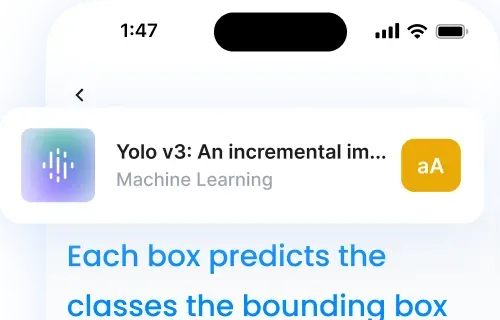Embarking on a PhD journey is a significant decision that requires careful preparation and consideration. Whether you’re an undergraduate student with a less-than-stellar GPA, a professional looking to transition into academia, or simply someone who wants to strengthen their research skills before diving into a doctoral program, there are several pre-PhD programs available to help you build the necessary skills and experience.
These programs can significantly enhance your PhD application and prepare you for the rigorous demands of doctoral study.
In this expanded guide, we’ll explore five types of pre-PhD programs in detail, discussing their benefits, structure, and how they can contribute to your academic journey. From intensive summer research experiences to online certificate programs, these options cater to a variety of needs and circumstances.
1. Research Intensive Summer Programs: Boost Your Research Skills as a Pre-PhD Student
Research-intensive summer programs are an excellent way for aspiring PhD students to gain hands-on experience and write research papers. These programs typically last 8-12 weeks and allow you to work closely with faculty members on cutting-edge research projects.
Benefits:
- Develop crucial research skills
- Learn to write research proposals and papers
- Network with faculty and other pre-PhD students
- Gain insight into the PhD process
Examples:
- Summer Research Opportunities Program (SROP) at Big Ten Academic Alliance universities
- Research Experience for Undergraduate (REU) programs funded by the National Science Foundation
These programs are particularly beneficial for undergraduates looking to strengthen their research experience before applying to PhD programs. They can help you build a strong foundation in research methodologies, data analysis, and academic writing.
2. Post-Baccalaureate Research Programs: Bridge the Gap to Get Admission into a PhD Program
Post-baccalaureate research programs are designed for recent graduates who want to strengthen their research experience before applying to PhD programs. These programs typically last 1-2 years and offer full-time research positions in academic or research institutions.
Key features:
- Intensive research experience
- Mentorship from experienced researchers
- Opportunity to publish papers and present at conferences
- Preparation for the PhD application process
Notable programs:
- NIH Postbaccalaureate Intramural Research Training Award (IRTA)
- Stanford University’s Post-Baccalaureate Research Education Program (PREP)
These programs are particularly useful for students with low GPAs or those who need additional research experience. They can significantly improve your chances of getting into top Ph.D. programs by demonstrating your research potential and commitment to academia.
3. Master’s Degree Programs: A Stepping Stone for Pre-PhD
Students pursuing a master’s degree can be an effective way to prepare for a PhD, especially if you need to improve your GPA or gain more specialized knowledge in your field.
Advantages:
- Opportunity to take advanced courses in your discipline
- Develop research skills through a thesis project or research-based coursework
- Build relationships with faculty members who can write strong letters of recommendation
- Explore research interests before committing to a long-term PhD program
Types of Master’s Programs:
1. Research-based Master of Science (MS) programs * Focus: Intensive research experience culminating in a thesis * Duration: 1-2 years * Best for: Students aiming for research-heavy PhD programs 2. Master of Arts (MA) programs in humanities and social sciences * Focus: Advanced coursework with a research component * Duration: 1-2 years * Best for: Students in non-STEM fields or those transitioning between disciplines 3. Professional master’s programs with research components * Focus: Blend of practical skills and research methodologies * Duration: 1-2 years * Best for: Students looking to balance academic preparation with professional development
Choosing the Right Master’s Program:
- Research focus: Look for programs with strong research components and thesis options
- Faculty expertise: Ensure the program has faculty members working in your areas of interest
- Resources: Consider the research facilities, funding opportunities, and support services available
- Track record: Investigate the program’s success in placing graduates into PhD programs
A master’s degree can serve as a valuable stepping stone to a PhD, allowing you to deepen your knowledge in your field of study and gain substantial research experience. It’s particularly beneficial if you’re changing fields or if your undergraduate GPA is below the typical threshold for competitive PhD programs (usually 3.5).

4. Pre-Doctoral Fellowships: Gain Valuable Experience as a PhD Student Before Formal Admission
Pre-doctoral fellowships offer aspiring PhD students the chance to work on research projects and gain experience in an academic setting before formally entering a PhD program.
Benefits:
- Hands-on research experience
- Mentorship from faculty members
- Exposure to the academic environment
- Potential for publications and conference presentations
Examples:
* Ford Foundation Predoctoral Fellowship NSF Graduate Research Fellowship Program (can be used for pre-doctoral research)
These fellowships can be an excellent way to prepare for a PhD, especially if you’re taking a year or two before starting a PhD program. They provide an opportunity to work closely with potential PhD supervisors and get a taste of doctoral-level research.
5. Online Certificate Programs: Enhance Your Skills to Excel in the PhD Process —————————
Online certificate programs can help you develop specific skills that are valuable for PhD students, such as advanced statistics, research methods, or academic writing.
Advantages:
- Flexibility to complete while working or studying
- Focus on specific skills needed for PhD success
- Opportunity to explore new areas of interest
- Demonstrate commitment to ongoing learning
Recommended areas:
- Advanced research methods
- Data analysis and statistics
- Academic writing and publishing
- Grant writing and research proposal development
Tailoring Your Pre-PhD Preparation

Pre-PhD programs offer valuable opportunities to enhance research skills, academic abilities, and overall preparedness for doctoral studies. These programs cater to diverse backgrounds, including those with lower GPAs, career changers, and international students looking to transition into the U.S. academic system.
When choosing a pre-PhD program, consider:
1. Your academic background and areas that need strengthening 2. Your time availability and financial situation 3. The specific requirements of your target PhD programs 4. Your long-term career goals in academia or research
Remember that while these programs are beneficial, they aren’t the only path to a PhD. Some individuals may choose to gain industry experience or work as research assistants instead. The ultimate goal is to demonstrate your research potential, academic abilities, and commitment to your chosen field.
By carefully selecting and fully engaging with a pre-PhD program, you can significantly enhance your chances of admission to top doctoral programs and set yourself up for success in your future academic career.









